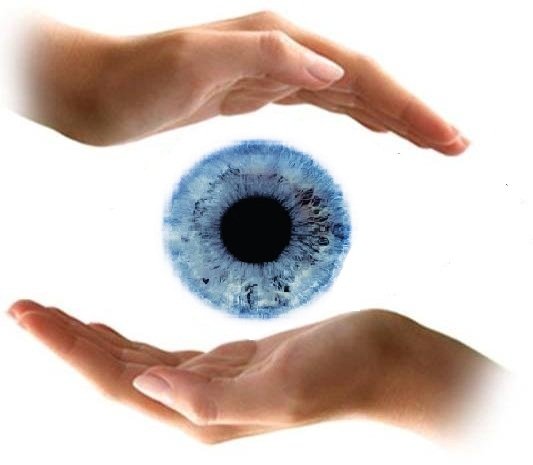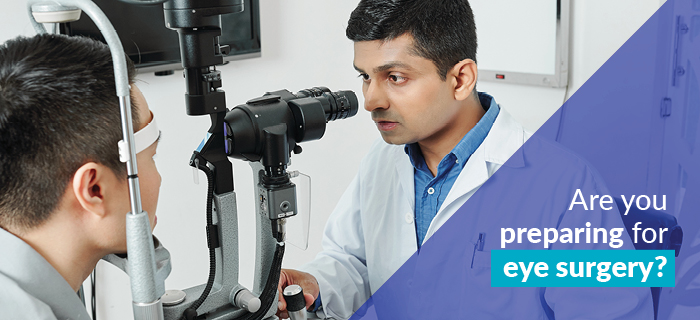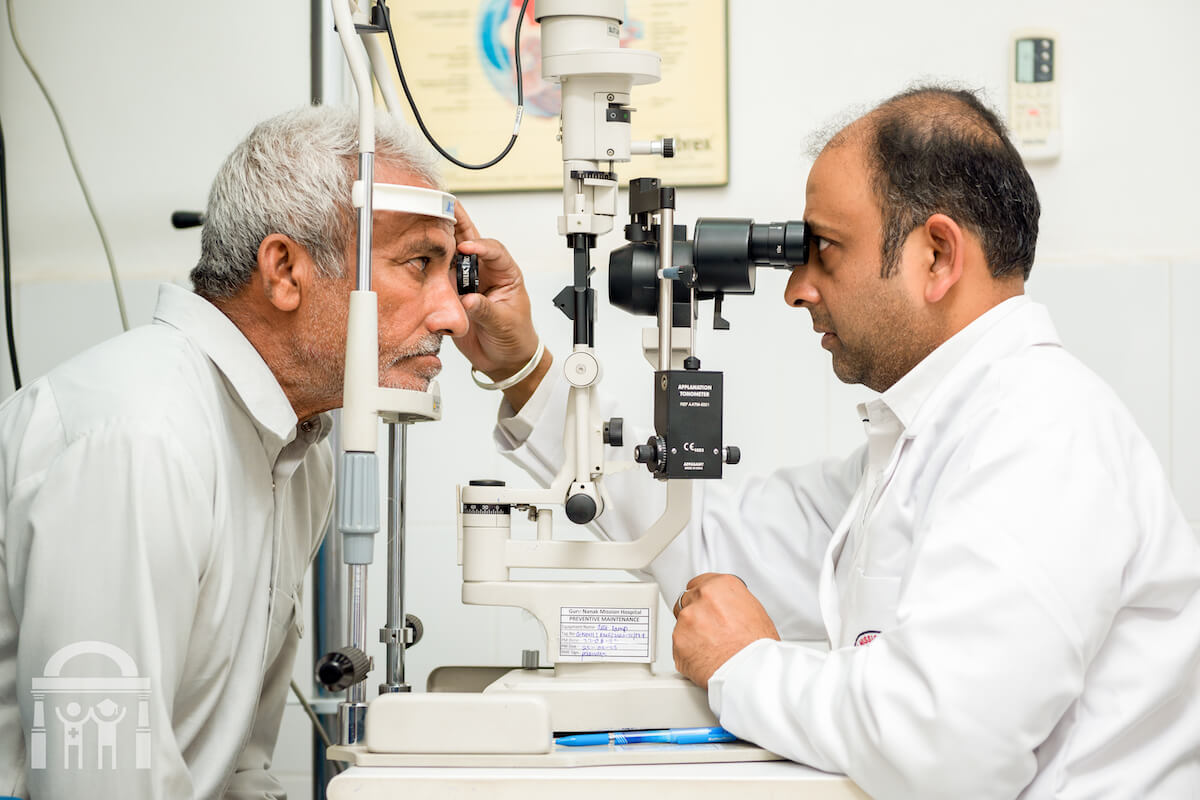Eye Health
Vision Vitality Expert Tips for Optimal Eye Health

Unveiling the Secrets to Vision Vitality: Expert Tips for Optimal Eye Health
Understanding the Importance of Eye Health
Your eyes are precious windows to the world, allowing you to see and experience the beauty around you. Yet, it’s easy to take them for granted until vision problems arise. Understanding the importance of eye health is the first step towards preserving your precious gift of sight and ensuring a lifetime of visual vitality.
Nourish Your Eyes with a Healthy Diet
Just like the rest of your body, your eyes benefit from a balanced diet rich in nutrients that support vision health. Incorporate foods high in antioxidants, vitamins A, C, and E, omega-3 fatty acids, and zinc into your meals. Think colorful fruits and vegetables, leafy greens, nuts, seeds, and fatty fish. These nutrients help protect your eyes from age-related damage and maintain optimal visual function.
Protect Your Eyes from Harmful UV Rays
Exposure to ultraviolet (UV) rays from the sun can contribute to various eye problems, including cataracts, macular degeneration, and photokeratitis (sunburn of the cornea). Protect your eyes by wearing sunglasses that block 100% of UVA and UVB rays whenever you’re outdoors, even on cloudy days. Look for sunglasses labeled with UV 400 or 100% UV protection to ensure adequate shielding for your eyes.
Practice Proper Eye Hygiene and Safety
Maintaining good eye hygiene and safety practices is essential for preventing eye infections and injuries. Wash your hands frequently, especially before touching your eyes or handling contact lenses. Follow proper contact lens care and hygiene guidelines, including cleaning, disinfecting, and replacing lenses as recommended by your eye care provider. Additionally, wear protective eyewear when engaging in activities that pose a risk of eye injury, such as sports, DIY projects, or working with hazardous materials.
Give Your Eyes a Break from Digital Screens
In today’s digital age, many of us spend extended periods staring at screens—whether it’s computers, smartphones, tablets, or televisions. Prolonged screen time can lead to digital eye strain, characterized by symptoms like dry eyes, blurry vision, headaches, and neck or shoulder pain. To alleviate digital eye strain, practice the 20-20-20 rule: every 20 minutes, take a 20-second break to look at something 20 feet away. Additionally, adjust your screen settings, position your monitor at eye level, and use artificial tears as needed to keep your eyes lubricated.
Schedule Regular Eye Exams
Routine eye exams are crucial for maintaining optimal eye health and detecting potential problems early on. Schedule comprehensive eye exams with an eye care professional, such as an optometrist or ophthalmologist, at least once a year or as recommended based on your age, risk factors, and overall eye health. During the exam, your eye care provider will assess your vision, screen for eye diseases, and prescribe corrective lenses or treatment as needed to keep your eyes healthy and your vision clear.
Stay Hydrated for Healthy Eyes
Proper hydration is essential for overall health, including eye health. Drinking an adequate amount of water helps maintain the moisture balance
Eye Care Basics Simple Hygiene Tips for Better Vision
Understanding the Importance of Eye Hygiene
Maintaining good eye hygiene is essential for preserving vision and preventing eye-related issues. By adopting simple yet effective hygiene tips, you can promote better eye health and clarity of vision.
Daily Eye Hygiene Routine
Establishing a daily eye hygiene routine is crucial for keeping your eyes clean and healthy. Start by washing your hands thoroughly with soap and water before touching your eyes. This helps prevent the transfer of dirt and bacteria to your eyes, reducing the risk of infections.
Proper Contact Lens Care
If you wear contact lenses, it’s important to follow proper care practices to avoid eye irritation and infections. Always wash your hands before handling your lenses and ensure they are properly cleaned and disinfected before each use. Additionally, replace your contact lens case regularly to prevent the buildup of bacteria.
Avoid Rubbing Your Eyes
While it may be tempting to rub your eyes when they feel tired or itchy, this can actually do more harm than good. Rubbing your eyes can transfer bacteria from your hands to your eyes, increasing the risk of infections. Instead, use eye drops to relieve dryness or irritation, and avoid touching your eyes unnecessarily.
Protect Your Eyes from UV Exposure
Exposure to ultraviolet (UV) rays from the sun can damage your eyes and increase the risk of cataracts and other eye conditions. Whenever you’re outdoors, wear sunglasses that offer 100% UV protection to shield your eyes from harmful rays. Additionally, consider wearing a wide-brimmed hat for added protection.
Practice the 20-20-20 Rule
Staring at screens for extended periods can cause eye strain and discomfort. To prevent this, follow the 20-20-20 rule: every 20 minutes, take a 20-second break and look at something 20 feet away. This helps reduce eye fatigue and allows your eyes to relax and refocus.
Stay Hydrated
Drinking plenty of water is essential for maintaining overall health, including the health of your eyes. Proper hydration helps prevent dry eyes and keeps the eyes lubricated and comfortable. Aim to drink at least 8 glasses of water per day, and consider using a humidifier in dry environments to add moisture to the air.
Eat a Balanced Diet
Nutrition plays a key role in eye health, so be sure to include foods rich in vitamins and nutrients that support good vision. Dark leafy greens, colorful fruits and vegetables, and omega-3 fatty acids found in fish are all beneficial for eye health. Consider taking a daily supplement to ensure you’re getting all the nutrients your eyes need.
Get Regular Eye Exams
Regular eye exams are essential for detecting and treating eye conditions early, before they can cause permanent damage to your vision. Schedule an eye exam with your optometrist at least once a year, or more frequently if you have existing eye conditions or risk factors.
Practice Proper Sleep Hygiene
Getting enough sleep is vital for overall health, including the health of your eyes. Aim for 7-8 hours of sleep per night, and practice good sleep
Optimizing Eye Health: Strategies for Clear Vision and Wellness

Nurturing Clear Vision: A Guide to Optimizing Eye Health
Maintaining optimal eye health is crucial for overall well-being, and adopting proactive strategies can significantly contribute to clear vision and long-term eye wellness. Let’s explore key aspects and practices that play a pivotal role in nurturing and optimizing eye health.
Regular Eye Examinations: The Foundation of Eye Care:
Scheduling regular eye examinations is fundamental to preserving eye health. Comprehensive eye exams not only assess visual acuity but also screen for potential eye conditions and systemic health issues. Early detection through routine exams allows for timely intervention, preventing complications and preserving clear vision.
Protective Measures Against Harmful UV Rays:
Exposure to ultraviolet (UV) rays poses a risk to eye health. Prolonged exposure may contribute to conditions like cataracts and macular degeneration. Wearing sunglasses that block UVA and UVB rays is a simple yet effective measure to shield the eyes from harmful sun exposure and promote long-term eye wellness.
Nutrition for Eye Wellness: Fueling Your Vision:
A well-balanced diet rich in nutrients is vital for maintaining eye health. Nutrients such as vitamins A, C, and E, along with minerals like zinc, play a crucial role in supporting ocular function. Incorporating foods like leafy greens, fish, and colorful fruits into your diet contributes to the nourishment your eyes need.
Digital Eye Strain: Mitigating the Impact of Screens:
In the digital age, prolonged screen time has become ubiquitous. This increased exposure can lead to digital eye strain, characterized by symptoms like dryness, headaches, and blurred vision. Implementing the 20-20-20 rule—taking a 20-second break every 20 minutes to look at something 20 feet away—helps alleviate strain and maintain eye comfort.
Hydration and Eye Moisture:
Proper hydration is essential for overall health, including eye wellness. Staying adequately hydrated ensures the eyes remain moist and comfortable. Dry eyes can lead to discomfort and affect vision quality. Drinking sufficient water throughout the day contributes to maintaining the natural moisture balance in the eyes.
Quality Sleep for Eye Restoration:
Quality sleep is a vital component of eye health. During sleep, the eyes have an opportunity to rest, repair, and replenish. Insufficient or poor-quality sleep can contribute to eye strain, dryness, and discomfort. Prioritizing a consistent and restful sleep routine supports overall eye wellness.
To explore more about optimizing eye health, visit www.dylanmessaging.com. Eye Health is a comprehensive endeavor that involves proactive measures and a holistic approach. From regular eye exams to protective measures against UV rays, nurturing eye health contributes not only to clear vision but also to the overall well-being of an individual.
Vision Wellness: Comprehensive Ophthalmology Services

Vision Wellness: Comprehensive Ophthalmology Services
Vision is a precious aspect of our well-being, and comprehensive ophthalmology services play a vital role in ensuring optimal eye health. From routine eye exams to advanced surgical interventions, these services cover a spectrum of care aimed at preserving and enhancing the gift of sight.
Preventive Eye Care: The Foundation of Ophthalmology Services
At the core of comprehensive ophthalmology services is preventive eye care. Routine eye exams serve as the foundation for maintaining eye health and detecting potential issues early. Ophthalmologists assess visual acuity, screen for eye diseases, and address refractive errors. These regular check-ups are instrumental in preventing, diagnosing, and managing a wide range of eye conditions.
Advanced Diagnostics: Precision in Eye Health Assessment
Comprehensive ophthalmology services incorporate advanced diagnostic technologies for precise assessments. From optical coherence tomography (OCT) to visual field testing, these tools provide detailed insights into the structure and function of the eyes. Ophthalmologists utilize these diagnostics to detect conditions such as glaucoma, macular degeneration, and diabetic retinopathy with high precision.
Refractive Surgery: Enhancing Visual Clarity
For those seeking freedom from glasses or contact lenses, refractive surgery is a key component of ophthalmology services. Procedures like LASIK and PRK reshape the cornea to correct refractive errors such as nearsightedness, farsightedness, and astigmatism. Ophthalmologists tailor these surgeries to individual needs, offering improved visual clarity and reducing dependence on corrective lenses.
Cataract Surgery: Restoring Clarity to Clouded Vision
Cataracts, a common age-related condition, can cloud the natural lens of the eye, leading to impaired vision. Comprehensive ophthalmology services include cataract surgery, a highly effective procedure where the clouded lens is replaced with an artificial intraocular lens (IOL). This surgery restores clarity to vision and enhances overall visual quality.
Retinal Interventions: Preserving Central Vision
Conditions affecting the retina, such as retinal detachment or macular degeneration, may require specialized interventions. Ophthalmology services encompass retinal surgeries and treatments, including vitrectomy and intravitreal injections. These interventions aim to preserve central vision and prevent further deterioration of retinal health.
Pediatric Ophthalmology: Nurturing Developing Eyes
Comprehensive ophthalmology services extend to pediatric care, addressing the unique needs of developing eyes. Pediatric ophthalmologists specialize in diagnosing and managing eye conditions in children, such as amblyopia (lazy eye), strabismus (crossed eyes), and refractive errors. Early intervention in childhood can significantly impact long-term visual health.
Corneal Transplants: Restoring Integrity to the Outer Eye
When the cornea is damaged or diseased, comprehensive ophthalmology services may include corneal transplants. Ophthalmologists perform transplant surgeries to replace damaged corneal tissue with healthy donor tissue. Corneal transplants are crucial for restoring the structural integrity of the outer eye and improving visual function.
Glaucoma Management: Preserving Optic Nerve Health
The management of glaucoma, a condition characterized by increased intraocular pressure and damage to the optic nerve, is integral to comprehensive ophthalmology services. Ophthalmologists employ various treatments, including medications, laser therapy, and surgical procedures, to manage glaucoma effectively and preserve optic nerve health.
Laser Eye Procedures: Precision in Surgical Interventions
Laser technology plays a pivotal role in certain ophthalmic surgeries.
Vision Wellness: Nurturing Your Eyes for Optimal Ophthalmology Care

Understanding the Importance of Ophthalmology Care:
Ophthalmology care is not just about treating eye problems; it’s a holistic approach to maintaining optimal vision and eye health. Regular eye check-ups are the cornerstone of preventive care, allowing early detection and intervention for a range of eye conditions.
Comprehensive Eye Examinations:
The foundation of effective ophthalmology care lies in comprehensive eye examinations. These examinations go beyond simple vision tests and delve into the overall health of the eyes. Through various tests and assessments, ophthalmologists can identify issues such as refractive errors, glaucoma, and even systemic conditions that may manifest in the eyes.
Personalized Treatment Plans:
Ophthalmologists tailor treatment plans to each individual’s unique needs. Whether it’s prescribing corrective lenses, recommending surgery, or suggesting lifestyle changes, personalized care ensures that patients receive interventions that address their specific eye health requirements.
Advanced Technologies in Eye Care:
The field of ophthalmology is continually advancing, with the integration of cutting-edge technologies to enhance diagnostics and treatment. From advanced imaging techniques to laser surgeries, these technologies contribute to more accurate diagnoses and better outcomes for patients.
Preventive Measures for Eye Health:
Beyond treating existing conditions, ophthalmology care emphasizes preventive measures to safeguard eye health. This includes educating patients about eye-friendly practices, such as regular breaks during screen time, proper UV protection, and maintaining a healthy lifestyle that supports overall eye well-being.
Pediatric Ophthalmology:
Children require specialized attention when it comes to eye care. Pediatric ophthalmologists focus on addressing vision issues in children, detecting problems early on, and providing interventions that support visual development. Early detection and treatment can significantly impact a child’s overall well-being and academic performance.
Addressing Age-Related Eye Conditions:
As individuals age, they become more susceptible to various eye conditions, such as cataracts, macular degeneration, and diabetic retinopathy. Ophthalmology care for the elderly involves regular monitoring, early detection, and appropriate interventions to maintain or improve their quality of life.
Lifestyle and Eye Health:
A crucial aspect of ophthalmology care is educating patients about lifestyle choices that can impact eye health. From a balanced diet rich in eye-friendly nutrients to adequate hydration and regular exercise, adopting a healthy lifestyle can contribute to maintaining optimal vision.
Collaboration with Other Specialties:
Ophthalmologists often collaborate with other medical specialties to address interconnected health issues. For example, conditions like diabetes can have profound effects on eye health. Collaboration ensures a comprehensive approach to care, addressing both ocular and systemic aspects.
Ongoing Eye Wellness:
Ophthalmology care goes beyond episodic treatments; it involves fostering ongoing eye wellness. Regular check-ups, adherence to prescribed treatments, and staying informed about the latest in eye health contribute to a lifetime of good vision.
To explore more about the holistic approach to eye care, visit www.dylanmessaging.com. Ophthalmology Care is not just about treating eye problems; it’s a holistic approach to maintaining optimal vision and eye health. Regular eye check-ups are the cornerstone of preventive care, allowing early detection and intervention for a range of eye conditions.
Visionary Ophthalmology Expertise: Nurturing Eye Health

Visionary Ophthalmology Expertise: Nurturing Eye Health
Ophthalmology experts play a pivotal role in safeguarding and enhancing one of our most precious senses – vision. This article explores the multifaceted expertise of ophthalmologists, their contributions to eye health, and the comprehensive care they provide to individuals seeking optimal vision and ocular well-being.
The Specialized Realm of Ophthalmology
Ophthalmology, a specialized branch of medicine, focuses on the diagnosis and treatment of eye-related conditions. Ophthalmologists undergo extensive training, equipping them with the skills to address a broad spectrum of eye diseases, refractive errors, and other vision-related issues. Their expertise extends beyond routine eye care, encompassing surgical interventions and complex treatments.
Comprehensive Eye Examinations: A Foundation for Eye Health
At the heart of ophthalmology expertise lies the commitment to preventive care. Ophthalmologists conduct comprehensive eye examinations that go beyond assessing visual acuity. These examinations encompass the evaluation of eye structures, eye movements, and visual field assessments. Routine eye check-ups serve as a foundation for early detection and intervention in eye conditions.
Precision in Refractive Error Corrections
Ophthalmology experts excel in correcting refractive errors, such as myopia, hyperopia, astigmatism, and presbyopia. Through precise measurements and assessments, they determine the most suitable corrective measures, including eyeglasses, contact lenses, or refractive surgeries like LASIK. This precision ensures optimal visual clarity and comfort for individuals with varying refractive needs.
Surgical Expertise in Eye Procedures
Ophthalmologists showcase their expertise through a range of surgical interventions aimed at restoring or enhancing vision. Cataract surgery, laser eye surgery, corneal transplants, and retinal procedures are among the intricate surgeries performed by these experts. Their surgical prowess addresses conditions affecting different parts of the eye, contributing to improved vision and quality of life.
Glaucoma Management: Preserving Optic Nerve Health
Ophthalmology experts play a crucial role in managing glaucoma, a condition characterized by increased intraocular pressure that can lead to optic nerve damage. Through medications, laser treatments, and surgical interventions, ophthalmologists strive to preserve optic nerve health and prevent the progression of glaucoma, safeguarding patients from vision loss.
Retina Care: Navigating Complex Ocular Structures
The retina, a complex structure at the back of the eye, requires specialized care. Ophthalmology experts adeptly navigate the intricacies of retinal conditions, including age-related macular degeneration, diabetic retinopathy, and retinal detachments. Advanced imaging technologies and innovative treatments enable ophthalmologists to address retinal issues with precision.
Pediatric Ophthalmology: Ensuring Child Eye Health
Ophthalmology expertise extends to the specialized field of pediatric ophthalmology. Ophthalmologists with expertise in pediatric care assess and manage eye conditions in children, addressing issues like amblyopia (lazy eye), strabismus (misalignment of eyes), and refractive errors. Early intervention in childhood lays the foundation for a lifetime of healthy vision.
Corneal Health and Transplants
Ophthalmologists specializing in corneal health address conditions affecting the cornea, such as infections, dystrophies, and injuries. In cases of severe corneal damage, corneal transplants may be recommended. Ophthalmology experts meticulously perform these transplants to restore clarity and maintain the structural integrity of the cornea.
Ongoing Advancements in Ophthalmology
The field of ophthalmology is marked by
Vision Wellness: Advanced Ophthalmology Treatments

Vision Wellness Unveiled: Exploring Advanced Ophthalmology Treatments
In the ever-evolving field of healthcare, ophthalmology stands as a crucial specialty dedicated to preserving and enhancing the gift of sight. With advancements in technology and medical expertise, ophthalmology treatments have witnessed remarkable progress. Let’s delve into the world of advanced ophthalmology treatments, shedding light on their significance in ensuring optimal vision wellness.
Precision Diagnostics with Modern Imaging
The foundation of effective ophthalmology treatments lies in precise diagnostics. Advanced imaging technologies, such as Optical Coherence Tomography (OCT) and fundus photography, allow ophthalmologists to capture detailed images of the eye’s structures. These diagnostic tools enable the early detection of various eye conditions, guiding ophthalmologists in formulating targeted treatment plans.
Corrective Procedures: Lasers and Beyond
Corrective procedures have become synonymous with ophthalmology treatments. Laser technologies, including LASIK and PRK, offer effective solutions for refractive errors like nearsightedness, farsightedness, and astigmatism. Beyond lasers, innovative intraocular lens implants are revolutionizing cataract surgery, providing patients with the opportunity to achieve clear vision without relying heavily on glasses.
Innovations in Glaucoma Management
Glaucoma, a leading cause of irreversible blindness, demands innovative approaches for effective management. Ophthalmology treatments for glaucoma now include minimally invasive surgical techniques, such as trabecular micro-bypass and laser trabeculoplasty. These advancements aim to reduce intraocular pressure and slow the progression of the disease, preserving the patient’s vision for a longer duration.
Retina Care: A Focus on Advanced Therapies
Diseases affecting the retina, such as age-related macular degeneration and diabetic retinopathy, benefit from cutting-edge therapies. Anti-VEGF injections have become a cornerstone in the management of these conditions, halting abnormal blood vessel growth and preventing vision loss. Ophthalmology treatments in retinal care emphasize early intervention to maximize efficacy.
Innovative Medications Transforming Eye Care
Advancements in pharmaceuticals have introduced innovative medications that play a pivotal role in ophthalmology treatments. From dry eye management to treating inflammatory eye conditions, these medications offer targeted relief with fewer side effects. Ophthalmologists now have a broader spectrum of options to address diverse eye health challenges.
Pediatric Ophthalmology: Early Intervention Matters
Addressing eye health in children requires a specialized approach. Pediatric ophthalmology treatments encompass early interventions for conditions like amblyopia (lazy eye) and strabismus (crossed eyes). Timely assessments and treatments in childhood contribute to the development of healthy vision, setting the stage for a lifetime of optimal eye health.
The Role of Ophthalmology in Age-Related Conditions
As the population ages, age-related eye conditions become more prevalent. Ophthalmology treatments for conditions like presbyopia and cataracts are tailored to meet the unique needs of older individuals. Multifocal lens implants and advanced cataract surgery techniques contribute to maintaining visual acuity in the aging population.
Digital Eye Strain and Technological Solutions
In the digital age, the prevalence of digital eye strain has surged. Ophthalmology treatments now include strategies to alleviate symptoms associated with prolonged screen time. Additionally, blue light-blocking lenses and specialized eye drops offer technological solutions to mitigate the impact of digital devices on eye health.
Ophthalmology Treatments: Navigating Information Resources
For those seeking comprehensive insights into
Vision Wellness: Nurturing Optimal Eye Health

Nurturing Optimal Eye Health: A Comprehensive Guide
Maintaining good eye health is essential for overall well-being, and it involves a combination of lifestyle choices, regular check-ups, and proactive measures. In this comprehensive guide, we explore various aspects of eye health, from common practices to emerging trends, with the aim of promoting clear vision and preventing eye-related issues.
The Importance of Routine Eye Check-ups
Regular eye check-ups are the cornerstone of maintaining optimal eye health. These examinations not only assess visual acuity but also screen for potential issues such as glaucoma, cataracts, and macular degeneration. Early detection is key to effective intervention, making routine eye check-ups an indispensable part of preventive healthcare.
Lifestyle Choices and Eye Wellness
Beyond eye examinations, lifestyle choices significantly impact eye health. A diet rich in nutrients like omega-3 fatty acids, lutein, zeaxanthin, and vitamins A, C, and E can contribute to ocular health. Additionally, practices like proper hydration, adequate sleep, and protective measures against UV rays help safeguard eyes from potential damage.
The Digital Age and Eye Strain
As our lives become more digitally oriented, prolonged screen time has become a common concern. Digital eye strain, characterized by symptoms like headaches and dry eyes, is a growing issue. Implementing the 20-20-20 rule (taking a 20-second break every 20 minutes and looking at something 20 feet away) and using blue light filters can alleviate strain and support eye health.
Preserving Vision in Sunlight
Protecting the eyes from harmful UV rays is paramount. Sunglasses with UV protection help shield eyes from the sun’s damaging effects. Additionally, wide-brimmed hats offer an extra layer of defense. Prioritizing these protective measures not only preserves vision but also reduces the risk of conditions like cataracts.
Addressing Age-Related Eye Conditions
As individuals age, the risk of age-related eye conditions increases. Conditions such as presbyopia, diabetic retinopathy, and age-related macular degeneration may emerge. Regular eye check-ups become even more crucial with age, allowing for early detection and management of these conditions to maintain optimal vision.
Emerging Trends in Vision Care
Advancements in vision care continue to shape the landscape of eye health. From innovative contact lens technologies to breakthroughs in laser eye surgery, these developments offer new possibilities for vision correction and enhancement. Staying informed about these trends ensures individuals can make educated decisions about their eye care.
The Role of Eye Health in Overall Well-Being
Clear vision is integral to daily activities and overall well-being. Beyond the physical aspects, good eye health contributes to mental well-being by reducing the stress and discomfort associated with vision-related issues. Prioritizing eye health is an investment in a higher quality of life and enhanced productivity.
Proactive Measures for Children’s Eye Health
Starting early is key when it comes to eye health. Children should undergo comprehensive eye examinations to detect issues like amblyopia or strabismus. Addressing these concerns early ensures proper visual development and sets the foundation for a lifetime of good eye health.
Eye Health: A Link to Longevity
Research suggests that maintaining good eye health is
Vision Wellness: Comprehensive Ophthalmology Checkup

Vision Wellness: Comprehensive Ophthalmology Checkup
Maintaining good eye health is crucial for overall well-being. Regular ophthalmology checkups play a vital role in preserving and protecting your vision. Let’s delve into the importance of these checkups and what they entail.
The Significance of Ophthalmology Checkups
Regular eye examinations are not just for those experiencing vision problems; they are essential for everyone, regardless of age or eye condition. Ophthalmology checkups are proactive measures to detect and address potential issues before they escalate. These comprehensive exams can identify a variety of eye conditions, such as glaucoma, cataracts, and macular degeneration, in their early stages when they are most treatable.
Frequency of Checkups
How often should you schedule an ophthalmology checkup? The recommended frequency varies based on age and existing eye conditions. Generally, adults with no known eye issues should have a comprehensive eye exam at least every two years. However, individuals with existing eye problems or specific risk factors may need more frequent checkups. It is crucial to consult with an eye care professional to determine the appropriate schedule for your unique situation.
Components of an Ophthalmology Checkup
During an ophthalmology checkup, various assessments are conducted to evaluate your eye health. These may include visual acuity tests, refraction assessments, intraocular pressure measurements, and a thorough examination of the external and internal structures of the eyes. Your eye care professional will also assess your overall health, as certain systemic conditions can manifest symptoms in the eyes.
Early Detection and Prevention
One of the primary benefits of regular ophthalmology checkups is the ability to detect eye conditions early on. Early detection allows for prompt intervention and management, which can significantly impact the prognosis and preservation of vision. Additionally, these checkups help identify risk factors and enable healthcare providers to offer personalized advice on lifestyle changes or interventions to prevent future eye problems.
Ophthalmology Checkup: A Painless Process
Some individuals may hesitate to schedule an ophthalmology checkup due to fear of discomfort or pain. However, it’s important to note that these examinations are typically painless. The eye care professional will use specialized equipment and techniques to examine your eyes without causing discomfort. The benefits of these checkups far outweigh any momentary unease, making them a small investment in your long-term eye health.
Embracing Technological Advancements
Advancements in technology have greatly enhanced the accuracy and efficiency of ophthalmology checkups. From digital retinal imaging to advanced diagnostic equipment, these tools enable eye care professionals to provide more precise assessments. Embracing these technological advancements ensures that patients receive the highest standard of care during their checkups.
Taking the Initiative for Your Eye Health
Your vision is a precious sense, and taking the initiative to prioritize your eye health is a crucial aspect of overall well-being. By scheduling regular ophthalmology checkups, you are actively participating in the preservation and enhancement of your vision. Don’t wait until you experience symptoms; be proactive in maintaining optimal eye health.
To schedule your Ophthalmology Checkup and take the first step towards preserving your vision,
Comprehensive Ophthalmology Checkup for Eye Health

Comprehensive Ophthalmology Checkup for Eye Health
Regular ophthalmology checkups are essential for maintaining optimal eye health and preventing potential vision problems. In this article, we will explore the significance of comprehensive ophthalmology checkups, the components involved, and how they contribute to preserving and enhancing one’s vision.
Early Detection and Prevention
One of the primary benefits of a comprehensive ophthalmology checkup is early detection and prevention. Eye conditions, such as glaucoma, macular degeneration, and diabetic retinopathy, often progress silently. Routine checkups allow ophthalmologists to identify these conditions in their early stages, enabling timely interventions and preventing irreversible vision loss.
Visual Acuity Testing: Beyond 20/20 Vision
Visual acuity testing, which measures how clearly you can see letters on an eye chart, is a fundamental part of the checkup. However, comprehensive ophthalmology goes beyond 20/20 vision. It assesses various aspects of visual function, including peripheral vision, depth perception, and color vision, providing a thorough evaluation of overall eye health.
Intraocular Pressure Measurement for Glaucoma Assessment
Measuring intraocular pressure is crucial for assessing the risk of glaucoma. Elevated intraocular pressure is a potential indicator of this sight-threatening condition. Regular monitoring through a comprehensive ophthalmology checkup allows for early detection and management, preventing the progression of glaucoma.
Retinal Examination: Unveiling the Inner Layers
A detailed retinal examination is a key component of ophthalmology checkups. This involves examining the inner layers of the eye, including the retina and optic nerve. Detecting abnormalities such as retinal detachment, diabetic retinopathy, or macular degeneration at an early stage enables timely intervention to preserve vision.
Cataract Evaluation and Lens Health
For individuals over 40, cataract evaluation becomes a significant aspect of ophthalmology checkups. Assessing the clarity of the lens and detecting early signs of cataracts allows for proactive measures. Ophthalmologists can provide guidance on lifestyle changes and surgical options if needed to maintain clear vision.
Refraction Testing and Prescription Updates
Refraction testing is conducted to determine the appropriate prescription for corrective lenses. Ophthalmology checkups ensure that your prescription is up-to-date, providing you with the clearest vision possible. Regular updates are crucial, especially for those with conditions like myopia, hyperopia, or astigmatism.
Evaluation of Eye Health in Diabetes
For individuals with diabetes, ophthalmology checkups are even more critical. Diabetes can lead to diabetic retinopathy, a condition that affects the blood vessels in the retina. Early detection and management through regular checkups are essential for preventing vision loss associated with diabetic retinopathy.
Assessment of Ocular Surface Health
Ophthalmology checkups also involve evaluating the health of the ocular surface, including the cornea and conjunctiva. Conditions like dry eye syndrome or infections can impact ocular comfort and vision. Identifying and addressing these issues during a checkup contributes to overall eye health.
Guidance on Eye Care and Lifestyle Habits
Comprehensive ophthalmology checkups offer an opportunity for ophthalmologists to provide personalized guidance on eye care and lifestyle habits. This may include recommendations for protective eyewear, tips for reducing eye strain, and advice on maintaining overall eye health through a balanced lifestyle.
Explore More About Ophthalmology Checkups
Leadership in Ophthalmology: Guiding Visionary Care

Leadership in Ophthalmology: Navigating Visionary Care
Ophthalmology experts are at the forefront of guiding visionary care, contributing to the well-being of individuals through their specialized knowledge and skills. From comprehensive eye examinations to intricate surgeries, these experts play a crucial role in preserving and enhancing the gift of sight.
Comprehensive Eye Examinations: The Foundation of Expertise:
Ophthalmology experts begin their journey with comprehensive eye examinations. This foundational step involves assessing visual acuity, examining eye health, and identifying potential issues. Through precise diagnostic techniques, these experts gain insights into the unique needs of each patient, setting the stage for personalized care.
Advanced Diagnostic Technologies: Precision in Assessment:
Modern ophthalmology relies on advanced diagnostic technologies that enable unprecedented precision in assessment. From optical coherence tomography (OCT) to visual field testing, these tools empower experts to detect subtle changes in the eye’s structure and function. This level of precision is instrumental in early detection and effective management of various eye conditions.
Vision Correction Strategies: Tailoring Solutions for Clarity:
Ophthalmology experts excel in providing vision correction strategies tailored to individual needs. Whether through prescription eyeglasses, contact lenses, or refractive surgery such as LASIK, these experts leverage their knowledge to offer solutions that enhance visual clarity and optimize the quality of life for their patients.
Surgical Expertise: Precision in Eye Surgeries:
For more complex eye conditions, ophthalmology experts bring their surgical expertise to the forefront. Cataract surgeries, corneal transplants, and retinal procedures demand precision and skill. These experts navigate delicate procedures with the goal of restoring or preserving vision, often transforming the lives of individuals facing serious eye challenges.
Innovations in Ophthalmic Technology: Shaping the Future of Care:
Ophthalmology experts stay at the cutting edge of innovations in ophthalmic technology. From femtosecond laser-assisted surgeries to advanced intraocular lenses, these experts embrace technological advancements that continually refine and expand the possibilities for vision care. This commitment to innovation shapes the future of ophthalmology.
To explore more about leadership in ophthalmology, visit www.dylanmessaging.com. Ophthalmology Expert is a title earned through a dedication to excellence in eye care. From comprehensive examinations to surgical precision and embracing innovations, these experts are guiding visionary care, ensuring that individuals can enjoy the world with clear and healthy eyesight.

